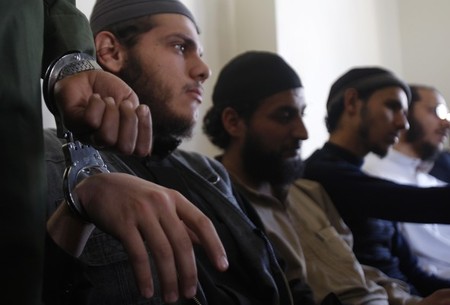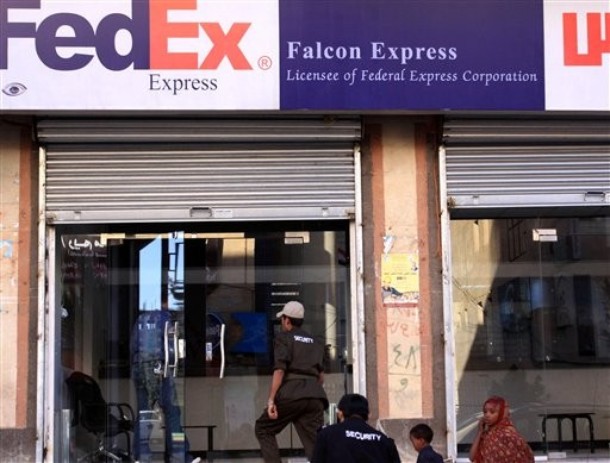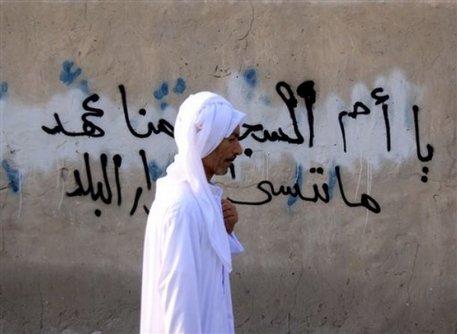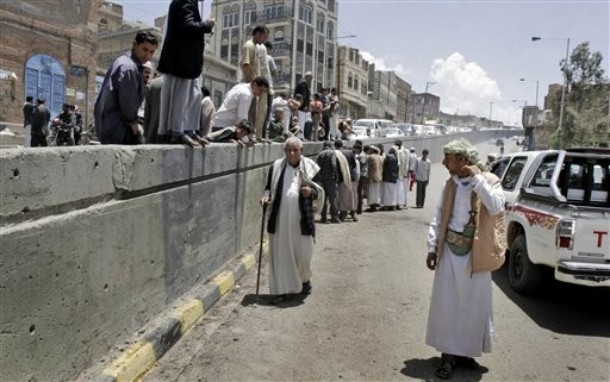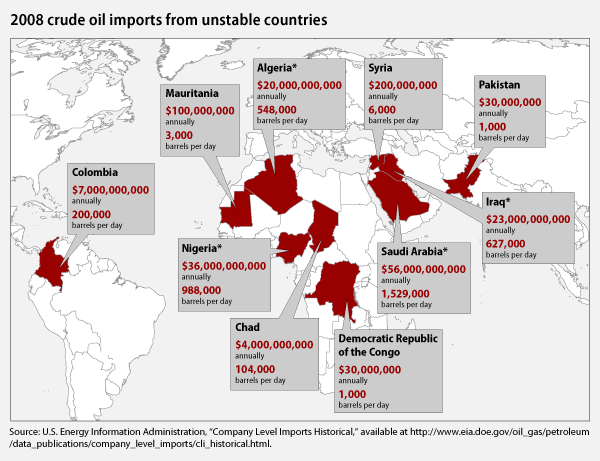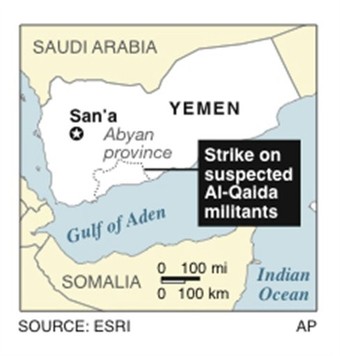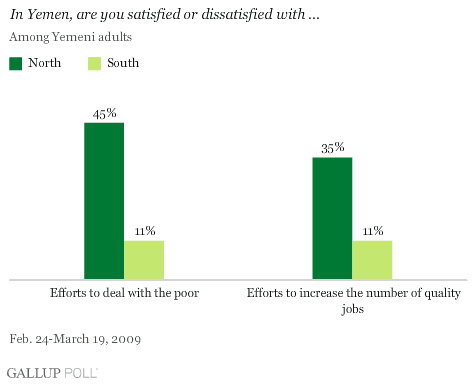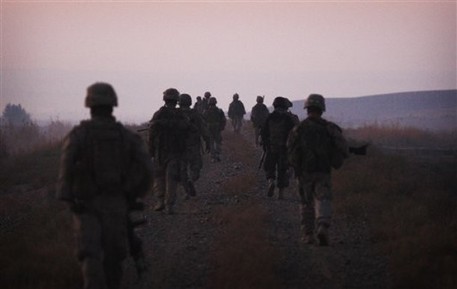The Washington Post offers some reporting from Yemen that suggests the U.S. drone campaign there is creating a mess:
U.S. airstrikes have killed numerous civilians in Afghanistan, Pakistan and other parts of the world, and those governments have spoken against the attacks. But in Yemen, the weak government has often tried to hide civilian casualties from the public, fearing repercussions in a nation where hostility toward U.S. policies is widespread. It continues to insist in local media reports that its own aging jets attacked the truck.
Meanwhile, the Obama administration has kept silent publicly, neither confirming nor denying any involvement, a standard practice with most U.S. airstrikes in its clandestine counterterrorism fight in this strategic Middle Eastern country.
In response to questions, U.S. officials in Washington, who spoke on the condition of anonymity because of the sensitivity of the matter, said it was a Defense Department aircraft, either a drone or a fixed-wing warplane, that fired on the truck. The Pentagon declined to comment on the incident, as did senior U.S. officials in Yemen and senior counterterrorism officials in Washington.
Since the attack, militants in the tribal areas surrounding Radda have gained more recruits and supporters in their war against the Yemeni government and its key backer, the United States. The two survivors and relatives of six victims, interviewed separately and speaking to a Western journalist about the incident for the first time, expressed willingness to support or even fight alongside AQAP, as the al-Qaeda group is known.
“Our entire village is angry at the government and the Americans,” Mohammed said. “If the Americans are responsible, I would have no choice but to sympathize with al-Qaeda because al-Qaeda is fighting America.”
Public outrage is also growing as calls for accountability, transparency and compensation go unanswered amid allegations by human rights activists and lawmakers that the government is trying to cover up the attack to protect its relationship with Washington. Even senior Yemeni officials said they fear that the backlash could undermine their authority.
“If we are ignored and neglected, I would try to take my revenge. I would even hijack an army pickup, drive it back to my village and hold the soldiers in it hostages,” said Nasser Mabkhoot Mohammed al-Sabooly, the truck’s driver, 45, who suffered burns and bruises. “I would fight along al-Qaeda’s side against whoever was behind this attack.”
Relatedly, Yemen expert Gregory Johnsen spoke to the Canadian International Council about the budding air war in Yemen. It's a very illuminating interview and in it, Johnsen argues that U.S. policy in Yemen is backfiring:
In the West, the debate over U.S. policy in Yemen has become focused on drone strikes, but in Yemen, the focus is on the civilian casualties that are a result of some of those strikes. When the Obama administration started carrying out attacks in Yemen, there were about 200-300 individuals affiliated with AQAP. Today, it’s at least 1,000 – in fact, the U.S. State Department estimates that it’s at least a few thousand. I don’t think all of this is attributable to the use of drones, or to the civilian casualties they’ve resulted in, but I think a large portion of it is, and because of this, one of the things that I think the U.S. has to do is reconsider its strike policy.
Johnsen goes on to argue that a more targeted policy of fewer strikes against only truly high value targets may yield better results. But he also makes a crucial point -- because of the secrecy that surrounds U.S. counter-terrorism policy, it's very hard to make critical judgments about its effectiveness:
So we’re all basing our analyses on what’s been made public, and because there’s so little of that and so much that remains shrouded in secrecy, we’re all able to import our own biases into the discussion. Two well-intentioned, honest individuals could look at the same thing, and one could claim the action represents an evolution of what the term “imminent threat” means, while the other could see an example of the U.S. acting as a counterinsurgency air force. The truth is that most of us on the outside just don’t know what the government officials who are making these decisions are thinking, or what’s driving the program.
